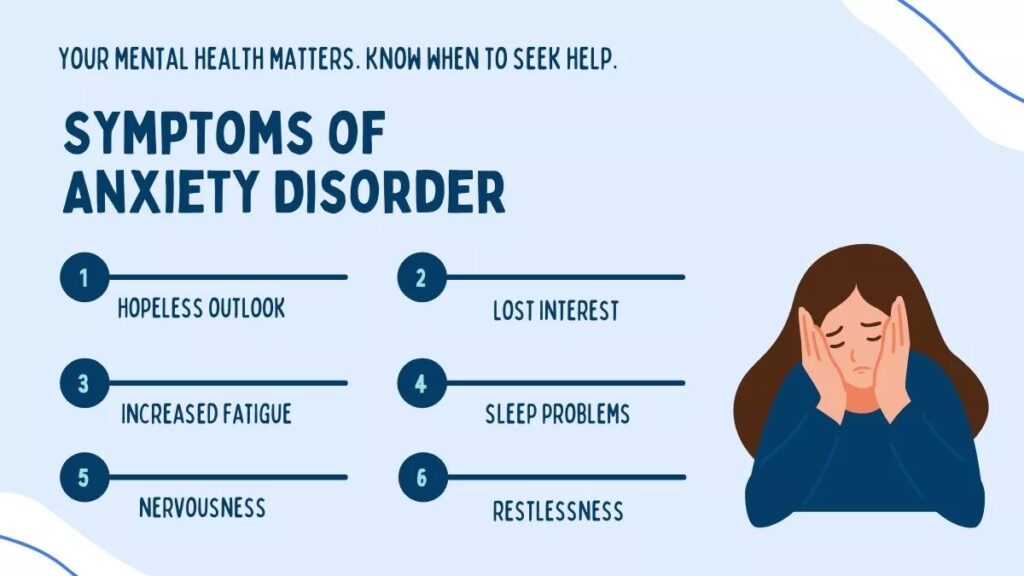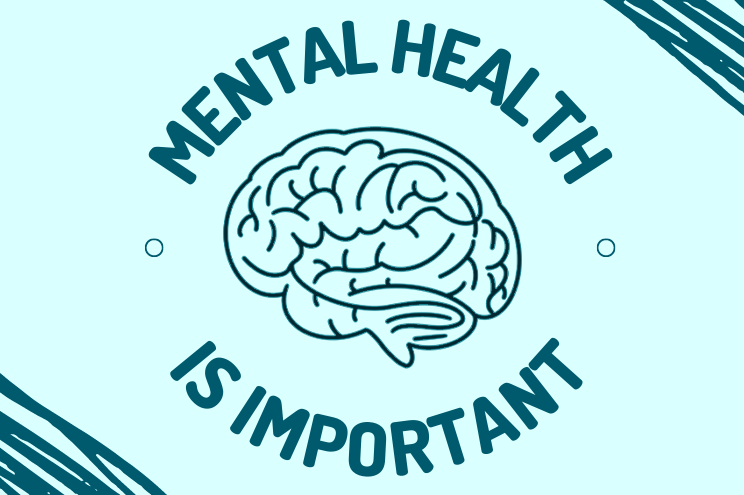Navigating Stress and Anxiety: Strategies for Men

Recognizing the Signs: Understanding Stress and Anxiety in Men

Stress and anxiety are common experiences that can affect anyone, regardless of gender. However, it’s important to recognize that the signs and symptoms of these conditions may differ for men. Understanding how stress and anxiety manifest in men is crucial for early identification and intervention, promoting overall mental well-being.
Men often exhibit physical symptoms when experiencing stress and anxiety. Headaches, muscle tension, and stomach problems, such as nausea or indigestion, are common physical indicators. In addition, men may also notice changes in their sleeping patterns, such as insomnia or excessive sleepiness. They may become more irritable, easily agitated, or have difficulty concentrating. Furthermore, it’s not uncommon for men to cope with stress and anxiety by engaging in harmful behaviors, such as excessive alcohol consumption or drug use, to numb their emotions. By recognizing these signs, individuals and their loved ones can take proactive steps towards seeking appropriate support and treatment.
Breaking the Stigma: Encouraging Men to Seek Help for Stress and Anxiety

When it comes to managing stress and anxiety, men often face unique challenges. Society has long perpetuated the misconception that men should be strong, stoic, and able to handle any emotional turmoil on their own. This harmful stigma surrounding mental health prevents many men from seeking the help and support they need. However, it is crucial to break down this barrier and encourage men to seek assistance for stress and anxiety.
Recognizing and addressing mental health issues is not a sign of weakness, but rather a brave and proactive step towards overall well-being. Ignoring or suppressing stress and anxiety can have long-lasting negative effects on physical and mental health. By seeking help, men can gain the tools and strategies necessary to effectively manage their stress and anxiety, leading to improved overall quality of life.
It is important to remember that everyone’s journey is unique and that seeking help is a personal decision. Encouraging men to seek assistance for stress and anxiety starts with open conversations and promoting a safe and non-judgmental space for discussions about mental health. By normalizing the act of seeking help, we can dismantle the stigma surrounding men’s mental health and empower individuals to prioritize their well-being. Together, we can foster a society that supports and uplifts men in navigating the complexities of stress and anxiety.
Prioritizing Self-Care: Essential Practices for Men to Manage Stress and Anxiety

Self-care is a crucial aspect of managing stress and anxiety, and it is equally important for men to prioritize their mental and emotional well-being. Taking the time to care for oneself can have a significant impact on overall stress levels and promote a sense of balance in life. There are several essential practices that men can adopt to effectively manage stress and anxiety.
First and foremost, practicing regular physical activity is known to be beneficial for both the body and the mind. Engaging in exercises such as jogging, swimming, or weight lifting not only helps release endorphins, which are natural mood boosters, but also provides an outlet for releasing built-up tension. Setting aside time for physical activity each day, even if it is just a brief walk during lunch breaks, can greatly contribute to reducing stress levels.
Another important aspect of self-care involves adopting healthy eating habits. Nourishing the body with a balanced diet can have a significant impact on one’s overall well-being. Consuming a variety of fruits, vegetables, whole grains, lean proteins, and healthy fats provides the necessary nutrients to support brain health and regulate mood. It is also beneficial to limit the consumption of caffeine, alcohol, and processed foods, as these can contribute to increased stress and anxiety levels.
Building a Support Network: Finding Reliable Allies in Times of Stress
When facing stress and anxiety, having a reliable support network can make a world of difference. Building a network of allies who understand and empathize with your struggles can help you navigate through challenging times with more ease. These allies can provide emotional support, offer different perspectives, and share coping strategies that have worked for them.
One way to find reliable allies is by reaching out to friends and family members who are trustworthy and understanding. These individuals can offer a listening ear, offer advice, and provide reassurance during moments of stress and anxiety. It’s important to foster open and honest communication with your loved ones, letting them know how you’re feeling and what you need from them. Additionally, consider joining support groups or seeking professional guidance, as these resources can connect you with individuals who are going through similar experiences and can offer a wealth of knowledge and encouragement.
Remember, building a support network takes time and effort, but the benefits are worth it. Surrounding yourself with reliable allies can provide the strength and comfort you need when navigating the ups and downs of stress and anxiety. With their support, you can gain valuable insights, learn new coping strategies, and ultimately find the resilience to overcome life’s challenges.
Managing Work-Related Stress: Strategies for Men to Maintain Balance
In today’s fast-paced and demanding work environment, stress has become a common occurrence for many men. Long hours, heavy workloads, and the pressure to meet deadlines can all contribute to mounting stress levels. However, it is essential to prioritize maintaining a healthy work-life balance in order to effectively manage work-related stress.
One strategy to maintain balance in the face of work-related stress is to establish clear boundaries between work and personal life. Set specific times to start and end work, and try to adhere to them as much as possible. This can help create a sense of structure and prevent work from seeping into personal time. Additionally, taking regular breaks throughout the workday is crucial. Stepping away from the desk, going for a short walk, or engaging in a relaxing activity can provide a much-needed mental and physical break, allowing for improved focus and productivity when returning to work.
Another effective strategy for managing work-related stress is effective time management. Prioritizing tasks, setting realistic goals, and breaking them down into smaller, manageable steps can help reduce feelings of overwhelm. Creating a to-do list or using a productivity app can aid in organizing and prioritizing tasks. By tackling tasks one at a time and focusing on one task at a time, men can improve their efficiency and reduce stress levels.
Overall, managing work-related stress requires intentional effort and strategies to maintain balance. By establishing clear boundaries, taking regular breaks, and implementing effective time management techniques, men can find greater peace and well-being in the workplace.
The Power of Physical Activity: How Exercise Can Alleviate Stress and Anxiety
Physical activity has long been recognized as a powerful tool in managing stress and anxiety. Engaging in regular exercise not only improves physical health but also has a profound impact on mental well-being. Research studies have consistently shown that exercise promotes the release of endorphins, often referred to as “feel-good” hormones, which can help reduce stress and anxiety levels.
In a study conducted by the Anxiety and Depression Association of America, it was found that just five minutes of aerobic exercise can trigger anti-anxiety effects. The study further highlighted that exercise can increase the sensitivity of serotonin receptors in the brain, which plays a crucial role in regulating mood. Additionally, regular physical activity has been associated with improved sleep quality, increased self-esteem, and enhanced cognitive function, all of which contribute to a reduction in stress and anxiety.
Moreover, exercise provides individuals with a productive outlet to release pent-up energy and tension. Whether it’s going for a run, hitting the gym, or practicing yoga, physical activity allows individuals to redirect their focus and energy towards something positive. This not only helps distract the mind from stressors but also provides a sense of control and accomplishment. In fact, a study published in the journal Health Psychology found that individuals who engaged in regular exercise reported lower levels of perceived stress compared to those who did not exercise.
Incorporating physical activity into one’s daily routine is essential for managing stress and anxiety effectively. Whether it’s a brisk walk during lunch breaks, participating in team sports, or dedicating time to yoga or Pilates, finding an activity that aligns with personal interests and preferences is crucial. It is important to note that consistency is key, and making exercise a regular part of one’s lifestyle yields the greatest benefits. So, lace up those sneakers, grab a workout buddy if desired, and get moving to experience the transformative power of physical activity in alleviating stress and anxiety.
Certainly! Here’s a table summarizing the power of physical activity and how exercise can alleviate stress and anxiety:
| The Power of Physical Activity: Alleviating Stress and Anxiety | Description |
|---|---|
| Stress-Relieving Effects of Exercise | Release of Endorphins: Physical activity triggers the release of endorphins, natural mood-boosting chemicals. |
| Reduced Cortisol Levels: Regular exercise helps lower cortisol levels, reducing stress and anxiety. | |
| Cardiovascular Exercise and Anxiety Reduction | Improved Blood Circulation: Cardiovascular activities enhance blood flow, promoting a sense of well-being. |
| Regulation of Neurotransmitters: Exercise influences neurotransmitters, such as serotonin, linked to mood regulation. | |
| Mind-Body Connection: Yoga and Tai Chi | Mindful Movement: Practices like yoga and tai chi combine physical activity with mindfulness for stress reduction. |
| Breath Awareness: Incorporating conscious breathing in these activities enhances relaxation and anxiety relief. | |
| Consistency and Routine in Physical Activity | Establishing a Routine: Consistent exercise routines contribute to stability and stress reduction over time. |
| Predictability and Control: Having control over a regular exercise routine can reduce uncertainty and anxiety. | |
| Social Engagement through Group Exercise | Community Connection: Group exercise fosters social interactions, providing support and a sense of belonging. |
| Motivation and Accountability: Exercising in a group setting can enhance motivation and commitment to regular activity. | |
| Nature and Outdoor Physical Activity | Green Exercise Benefits: Outdoor activities in natural settings offer additional stress-relieving benefits. |
| Vitamin D Exposure: Sunlight during outdoor activities supports vitamin D production, linked to mood improvement. | |
| Neuroplasticity and Cognitive Benefits of Exercise | Brain Structure Changes: Exercise induces neuroplasticity, positively impacting brain structure and function. |
| Cognitive Flexibility: Regular physical activity is associated with improved cognitive function and stress resilience. | |
| Sleep Quality Improvement | Regulated Sleep Patterns: Exercise helps regulate sleep patterns, contributing to improved sleep quality. |
| Reduction in Insomnia Symptoms: Physical activity can alleviate symptoms of insomnia often associated with stress and anxiety. | |
| Mind-Body Techniques within Exercise | Progressive Muscle Relaxation: Incorporating relaxation techniques within workouts enhances stress reduction. |
| Body-Mind Coordination: Activities like Pilates integrate body-mind coordination for holistic well-being. | |
| Tailoring Exercise to Personal Preferences | Enjoyable Activities: Encouraging engagement in physical activities that individuals find enjoyable and satisfying. |
| Increased Adherence: Choosing activities based on personal preferences increases the likelihood of consistent participation. | |
| Consulting Healthcare Professionals | Individualized Approaches: Seeking guidance from healthcare professionals to create personalized exercise plans. |
| Addressing Physical Limitations: Ensuring that exercise plans are adapted to accommodate any physical limitations. |
Healthy Eating Habits: Nourishing the Body and Mind to Combat Stress
Maintaining healthy eating habits is crucial for nourishing both the body and mind, especially in times of stress. The food we eat plays a significant role in our overall well-being, and making conscious choices can have a positive impact on our stress levels. Research has shown that certain nutrients can help reduce stress and anxiety, while others can exacerbate these conditions.
First and foremost, it is important to prioritize a diet rich in fruits, vegetables, whole grains, and lean proteins. These foods provide essential vitamins, minerals, and antioxidants that support brain health and reduce oxidative stress. Additionally, incorporating omega-3 fatty acids found in fatty fish like salmon and mackerel, as well as nuts and seeds, can help reduce inflammation in the body, which has been linked to stress and anxiety. It is also essential to limit the consumption of processed foods, refined sugars, and caffeine, as these can negatively impact mood and increase stress levels. By making conscious choices about what we eat, we can nourish our bodies and minds, helping to combat the effects of stress and anxiety.
Mindfulness and Meditation: Techniques for Men to Cultivate Inner Calm
Mindfulness and meditation are powerful techniques that can help men cultivate inner calm and reduce stress and anxiety in their lives. These practices involve paying attention to the present moment with non-judgmental awareness, allowing individuals to fully experience their thoughts, feelings, and bodily sensations. By incorporating mindfulness and meditation into their daily routine, men can develop a greater sense of self-awareness and emotional balance.
Research has shown that mindfulness and meditation can have a profound impact on mental well-being. Studies have found that regular mindfulness practice can lead to decreased symptoms of anxiety and depression, increased resilience to stress, and improved overall psychological well-being. It can also enhance emotional regulation, helping men better manage their reactions to challenging situations.
One of the key benefits of mindfulness and meditation is their ability to activate the relaxation response in the body, reducing the production of stress hormones and promoting a state of calm and tranquility. By practicing deep breathing exercises, focusing on the present moment, and letting go of negative thoughts, men can create a space of inner peace and stability amidst the chaos of daily life.
Incorporating mindfulness and meditation into their routine doesn’t have to be complicated. It can be as simple as setting aside a few minutes each day to sit quietly, close your eyes, and focus on your breath. There are also various guided meditation apps and online resources available that can provide step-by-step instructions and support for beginners.
By making mindfulness and meditation a regular part of their lives, men can cultivate inner calm, improve their emotional well-being, and better cope with the challenges and stressors they may face. It is a valuable tool for self-care and can greatly contribute to a healthier and more balanced life.
Effective Time Management: Organizational Tips for Reducing Stress
Organizational skills and effective time management are essential for reducing stress and maintaining a healthy work-life balance. By implementing strategic techniques, men can alleviate stress and improve their overall well-being.
First and foremost, prioritizing tasks is crucial when it comes to effective time management. Start by creating a to-do list and categorizing items based on urgency and importance. This will help you focus on the most critical tasks and ensure that you are utilizing your time efficiently. Additionally, consider utilizing time-blocking techniques, where you allocate specific time periods for different activities. This allows for better focus and prevents time wastage.
Another helpful tip for managing time effectively is to minimize distractions. In today’s digital age, it’s easy to get sidetracked by social media, emails, or other forms of online entertainment. Set specific periods throughout the day for checking emails or engaging with social media, and limit this activity during designated work or study hours. By doing so, you can maintain a productive and focused mindset, enabling you to complete tasks more efficiently.
In conclusion, effective time management and organizational skills are invaluable tools for reducing stress and enhancing productivity. By prioritizing tasks and minimizing distractions, men can take control of their time, leading to a more balanced and fulfilling life.
Identifying Triggers: Understanding What Causes Stress and Anxiety in Men
Identifying Triggers: Understanding What Causes Stress and Anxiety in Men
Stress and anxiety are common to the human experience, affecting individuals of all genders and backgrounds. However, it is important to recognize that men may face unique triggers that contribute to their emotional well-being. By understanding these triggers, men can develop strategies to effectively manage and reduce stress and anxiety.
One significant trigger for stress and anxiety in men is work-related pressures. The demands of careers, such as long working hours, high job demands, and limited control over tasks, can lead to chronic stress. Research has shown that men who experience work-related stress are at a higher risk of developing anxiety disorders and depressive symptoms. Additionally, factors such as job insecurity, conflicts in the workplace, and lack of support from colleagues and supervisors can amplify stress levels. By recognizing these triggers, men can focus on implementing healthy coping mechanisms and seeking workplace support to alleviate stress and anxiety.
Coping with Relationship Stress: Communication and Conflict Resolution Skills
In relationships, it is not uncommon for stress and conflict to arise. When faced with these challenges, effective communication and conflict resolution skills can be invaluable in maintaining a healthy and harmonious partnership. Clear and open communication is the foundation of any thriving relationship, as it allows both partners to express their needs, concerns, and desires. By actively listening to one another and practicing empathy, individuals can foster understanding and create space for compassionate problem-solving.
Conflict is a natural part of any relationship, but how it is handled can make all the difference. When faced with a disagreement or discord, it is important to approach the situation with calmness and patience. Active listening plays a crucial role in conflict resolution, as it allows both parties to fully understand each other’s perspectives and underlying emotions. Finding a compromise that meets the needs of both individuals can be achieved through respectful and constructive dialogue. It is also important to be mindful of non-verbal cues and body language, as they can convey unspoken messages that may influence the outcome of the conversation. By prioritizing effective communication and embracing conflict as an opportunity for growth and understanding, couples can navigate relationship stress with grace and strengthen their bond.
Setting Realistic Goals: Strategies for Men to Manage Expectations and Reduce Stress
As men strive to achieve success in various aspects of their lives, it is crucial to set realistic goals that align with their capabilities and circumstances. Setting realistic goals is an essential strategy for managing expectations and reducing stress. Unrealistic goals can create undue pressure, leading to increased stress and anxiety. By setting achievable goals, men can foster a sense of accomplishment and minimize the negative impact of stress on their mental and physical well-being.
One effective strategy for setting realistic goals is to break them down into smaller, manageable steps. This approach allows men to focus on the immediate actions they need to take, rather than becoming overwhelmed by the enormity of the end result. By breaking down goals into smaller tasks, men can set specific and measurable targets that are within their reach. For example, instead of setting a goal to completely eliminate stress from their lives, they can focus on incorporating stress-reducing activities into their daily routine, such as meditation for 10 minutes each morning or taking regular exercise breaks during the workday. These smaller, achievable goals provide a sense of progress and accomplishment, reducing stress levels and increasing motivation to continue on the path toward overall well-being.
Breaking the Cycle: Techniques for Men to Cope with Chronic Stress and Anxiety
Chronic stress and anxiety can be incredibly debilitating, affecting every aspect of a man’s life. It’s important to recognize that coping with these conditions requires a multifaceted approach that addresses both the physical and emotional aspects of well-being. By breaking the cycle of chronic stress and anxiety, men can regain control of their lives and experience a greater sense of calm and peace.
One technique that has proven to be effective in coping with chronic stress and anxiety is cognitive-behavioral therapy (CBT). CBT focuses on identifying and changing negative thought patterns and behaviors that contribute to stress and anxiety. Through this therapy, men can learn healthier ways to respond to stressors, challenge irrational beliefs, and develop coping strategies that promote overall well-being. CBT can be done individually or in a group setting, and it offers practical tools that men can use in their daily lives to manage stress and anxiety more effectively.
Another technique that can help men break the cycle of chronic stress and anxiety is relaxation training. This can involve various activities such as deep breathing exercises, progressive muscle relaxation, guided imagery, and meditation. By practicing these techniques regularly, men can learn to activate the body’s relaxation response, which counteracts the effects of stress and promotes a sense of calm and tranquility. In addition to their immediate benefits, relaxation techniques can also have long-term effects on overall mental and physical health.
Seeking Professional Help: When and How to Consult a Mental Health Expert
Seeking professional help for stress and anxiety can be a crucial step towards finding relief and regaining control of your life. While it may seem intimidating to reach out to a mental health expert, it is important to remember that they are there to support you and guide you through your journey towards better mental well-being.
One of the first signs that may indicate the need for professional help is when your stress and anxiety begin to interfere with your daily functioning and quality of life. If you find yourself constantly overwhelmed, unable to concentrate, experiencing changes in your appetite or sleep patterns, or withdrawing from friends and family, it may be time to seek support. A mental health expert can provide a proper assessment and diagnosis, helping you better understand your symptoms and develop an effective treatment plan. It is important to remember that seeking help is not a sign of weakness but rather a courageous step towards taking care of your mental health.
Maintaining Long-Term Wellness: Strategies for Men to Sustain a Stress-Free Lifestyle
Maintaining long-term wellness is crucial for men to sustain a stress-free lifestyle. It involves adopting strategies that promote overall well-being, both physically and mentally. One effective strategy is to prioritize regular exercise. Engaging in physical activity not only helps in managing stress levels but also boosts mood and improves overall health. Incorporating activities such as jogging, swimming, or cycling into your routine can have significant positive effects on your mental and emotional state.
Another important aspect of maintaining long-term wellness is ensuring a healthy diet. Proper nutrition plays a vital role in managing stress and anxiety. Opting for a balanced diet that includes fruits, vegetables, whole grains, lean proteins, and healthy fats can provide essential nutrients that support brain function and regulate mood. Additionally, limiting the consumption of sugary and processed foods can help prevent energy crashes and promote sustained levels of energy throughout the day.
By adopting these strategies, men can take proactive steps to sustain a stress-free lifestyle and improve their overall well-being. Incorporating regular exercise and a healthy diet into daily routines can have lasting positive effects on both physical and mental health.
What are some common signs of stress and anxiety in men?
Common signs of stress and anxiety in men can include increased irritability, difficulty sleeping, changes in appetite, fatigue, and a general feeling of being overwhelmed.
How can men break the stigma surrounding seeking help for stress and anxiety?
Men can break the stigma surrounding seeking help for stress and anxiety by promoting open conversations about mental health, encouraging others to share their experiences, and educating society about the importance of seeking professional support when needed.
What are some essential self-care practices that men can prioritize to manage stress and anxiety?
Essential self-care practices that men can prioritize to manage stress and anxiety include getting enough sleep, practicing relaxation techniques such as deep breathing or meditation, engaging in physical activity, and taking breaks to engage in hobbies or activities they enjoy.
How can men build a reliable support network to turn to in times of stress?
Men can build a reliable support network by reaching out to friends and family, joining support groups or men’s groups, and seeking professional counseling or therapy. It’s important to surround oneself with individuals who are understanding, empathetic, and willing to listen without judgment.
What strategies can men use to maintain balance and manage work-related stress?
Strategies that men can use to maintain balance and manage work-related stress include setting boundaries, practicing time management techniques, delegating tasks when possible, and engaging in regular breaks or self-care activities during the workday.
How does exercise help alleviate stress and anxiety in men?
Exercise helps alleviate stress and anxiety in men by increasing the production of endorphins, which are natural mood enhancers. Physical activity also promotes better sleep, boosts self-confidence, and provides a healthy outlet for releasing tension and pent-up emotions.
What role does healthy eating play in combating stress?
Healthy eating plays a vital role in combating stress by providing the body with essential nutrients and supporting overall well-being. Consuming a balanced diet rich in fruits, vegetables, whole grains, and lean proteins can help stabilize mood, improve energy levels, and enhance resilience to stress.
How can men incorporate mindfulness and meditation into their daily routine?
Men can incorporate mindfulness and meditation into their daily routine by setting aside a specific time each day for these practices. This can involve finding a quiet space, focusing on the present moment, and engaging in deep breathing exercises or guided meditation sessions to cultivate inner calm and reduce stress.
What are some effective time management techniques that men can use to reduce stress?
Effective time management techniques that men can use to reduce stress include prioritizing tasks, creating to-do lists, setting realistic goals, breaking larger tasks into smaller, more manageable ones, and utilizing tools such as calendars or productivity apps to stay organized.
How can men identify triggers that cause stress and anxiety?
Men can identify triggers that cause stress and anxiety by reflecting on their experiences and paying attention to patterns or situations that consistently lead to heightened stress levels. Keeping a journal or seeking professional guidance can also help uncover underlying causes and triggers.
What communication and conflict resolution skills can men use to cope with relationship stress?
Men can cope with relationship stress by practicing active listening, expressing emotions and concerns openly and honestly, seeking compromise and finding healthy ways to resolve conflicts. Developing effective communication skills and seeking couples’ therapy, if necessary, can also help improve relationship dynamics and reduce stress.
How can men manage expectations and reduce stress by setting realistic goals?
Men can manage expectations and reduce stress by setting realistic goals that are attainable and align with their abilities, resources, and time constraints. It’s important to break larger goals into smaller, actionable steps and celebrate progress along the way to maintain motivation and minimize stress.
What techniques can men use to cope with chronic stress and anxiety?
Techniques that men can use to cope with chronic stress and anxiety include engaging in regular exercise, practicing relaxation techniques, seeking therapy or counseling, maintaining a healthy lifestyle, and actively engaging in stress-reducing activities such as hobbies, socializing, or spending time in nature.
When and how should men seek professional help for stress and anxiety?
Men should seek professional help for stress and anxiety when their symptoms significantly impact their daily life, relationships, or overall well-being. It’s important to reach out to a mental health expert, such as a therapist or psychiatrist, who can provide appropriate guidance, support, and treatment options.
What are some long-term strategies for men to sustain a stress-free lifestyle?
Long-term strategies for men to sustain a stress-free lifestyle include practicing ongoing self-care, maintaining a healthy work-life balance, surrounding oneself with a supportive network, participating in stress-reducing activities, and regularly seeking professional help or therapy when needed. It’s crucial to prioritize mental health and well-being as an ongoing commitment.






